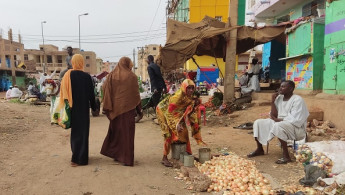Sudan capital Khartoum quiet as 24-hour ceasefire takes hold
The Sudanese capital Khartoum was relatively calm on Saturday morning as a US and Saudi-brokered 24-hour ceasefire took effect, providing a window for humanitarian assistance and giving the public a break from the pressure of intense fighting.
The short ceasefire follows a string of violated truces between Sudan's army and the paramilitary Rapid Support Forces (RSF), whose power struggle erupted into violence eight weeks ago, sparking a humanitarian crisis.
The US and Saudi Arabia said they shared "frustration" over the violations in a statement announcing the latest truce, and they threatened to adjourn the talks, which have continued indirectly recently, if fighting continues.
The fighting which began on April 15, has turned the metropolitan area including Khartoum and its sister cities Bahri and Omdurman into a war zone, and led to conflict in Sudan's Darfur and Kordofan regions to the west.
Before the start of the truce at 06:00 (0400 GMT), residents reported anti-aircraft missiles firing in southern Khartoum and the Sharg el-Nil district across the Nile, which also saw air strikes.
In the week since the last ceasefire lapsed on June 3 there has been intense fighting, including around crucial army bases, with the RSF claiming to have taken control of an arms manufacturing complex in southern Khartoum.
The US State Department said late on Friday it was supporting a platform called the Sudan Conflict Observatory which would release results of satellite monitoring of the fighting and ceasefires.
An initial report by the observatory documented "widespread and targeted" destruction of water, power and telecom facilities.
It also documented eight "systematic" arson attacks that razed villages in Darfur and several attacks on schools, mosques and other public buildings in El Geneina, the country's westernmost city, which has seen fierce militia attacks amid a telecom blackout.
More than half of Sudan's population will require aid this year due to the fighting, the UN has said, as most hospitals in conflict areas have stopped functioning and food supplies in many areas are dwindling.
Previous ceasefires had allowed some humanitarian access, but aid agencies reported still being impeded by the fighting, bureaucratic control and looting.
The fighting has displaced more than 1.9 million people, more than 400,000 of whom have crossed into neighbouring countries.
It also derailed the launch of a transition towards civilian rule four years after a popular uprising ousted authoritarian president Omar al-Bashir.
Sudan's army and the RSF, a parallel force that has operated legally since 2017, fell out over plans to integrate their troops and reorganise their chain of command as part of the transition.
(Reuters)





 Follow the Middle East's top stories in English at The New Arab on Google News
Follow the Middle East's top stories in English at The New Arab on Google News


